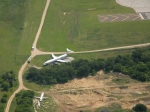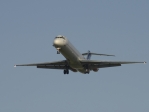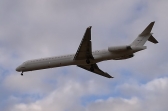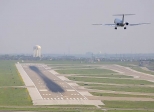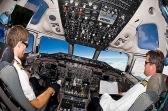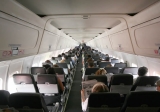
No other airliner in history has undergone more development than the prolific DC-9/MD-80/MD-90/717 series, which started life with the 70 seat DC-9-10 of the early sixties.
Douglas developed the DC-9 as a short range airliner complementing the much larger DC-8. Development was launched on April 8 1963, with a launch order from Delta following soon after. The DC-9 was an all new design, featuring rear fuselage mounted engines, a T-tail, moderately swept wings and seats for up to 90 passengers in a five abreast fuselage.
Construction of the prototype began in July 1963 and the first flight occurred on February 25 1965. Certification and service entry was on November 23 and December 8 1965, respectively.
From the outset the DC-9 had been designed with stretched larger capacity developments in mind. The first stretch resulted in the biggest selling DC-9, the 4.54m (14ft 11in) longer, 105 seat DC-9-30, which entered service with Eastern on February 1 1967. Subsequent stretched versions are described separately.
Small numbers of developed versions of the DC-9-10 were also built. The DC-9-20 featured the DC-9-10's fuselage with the 30's more powerful engines and longer span wings, giving better hot and high performance. The DC-9-15 was basically a -10 but with more fuel and higher weights. Factory built convertibles and pure freighters were also offered, while a number of DC-9-30s have been converted to freighters, and/or are having Stage 3 hushkits fitted, further extending their useful service lives.
Plane info
Cruise speed: 903 km/h
Total range: 2 340 km
Engines: 2 x Pratt & Whitney JT8D-5
Aircraft dimensions
Wingspan: 27.25 m
Length: 31.82 m
Height: 8.38 m
Cabin
Passengers: up to 90

